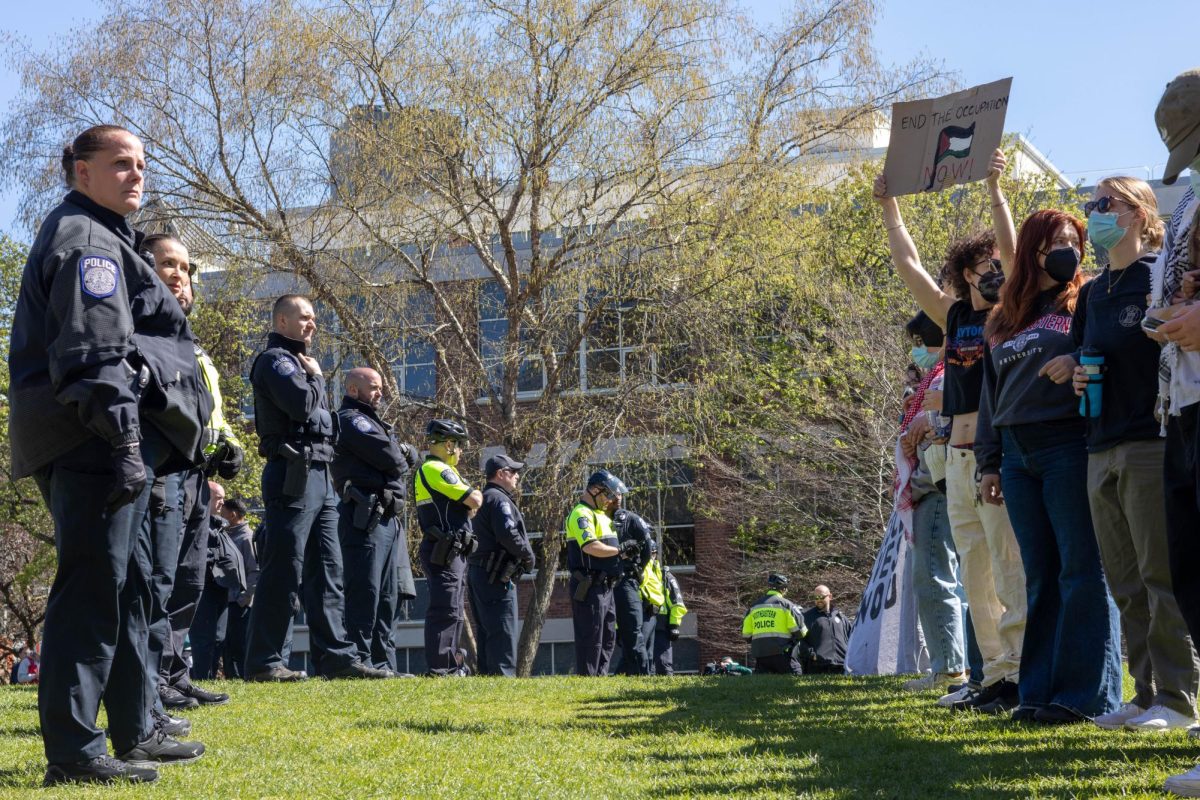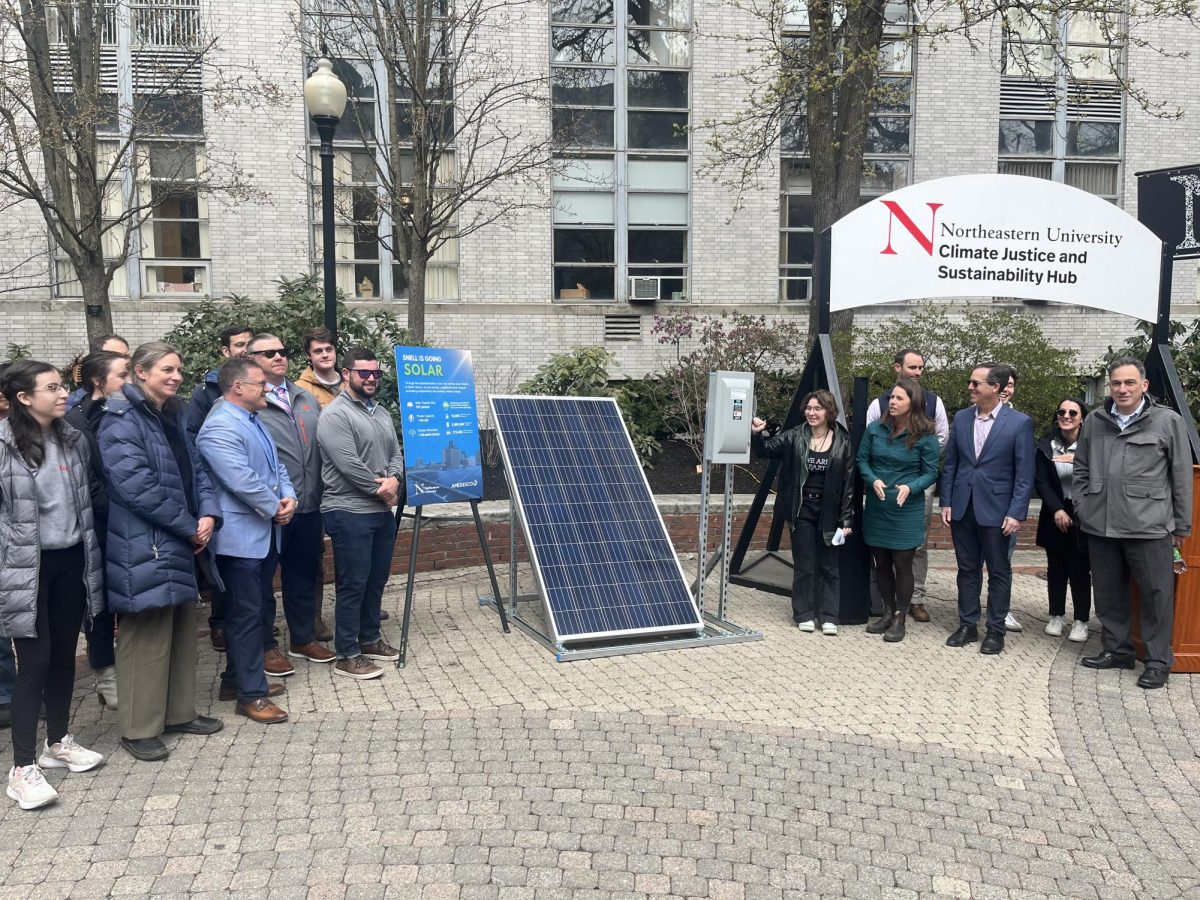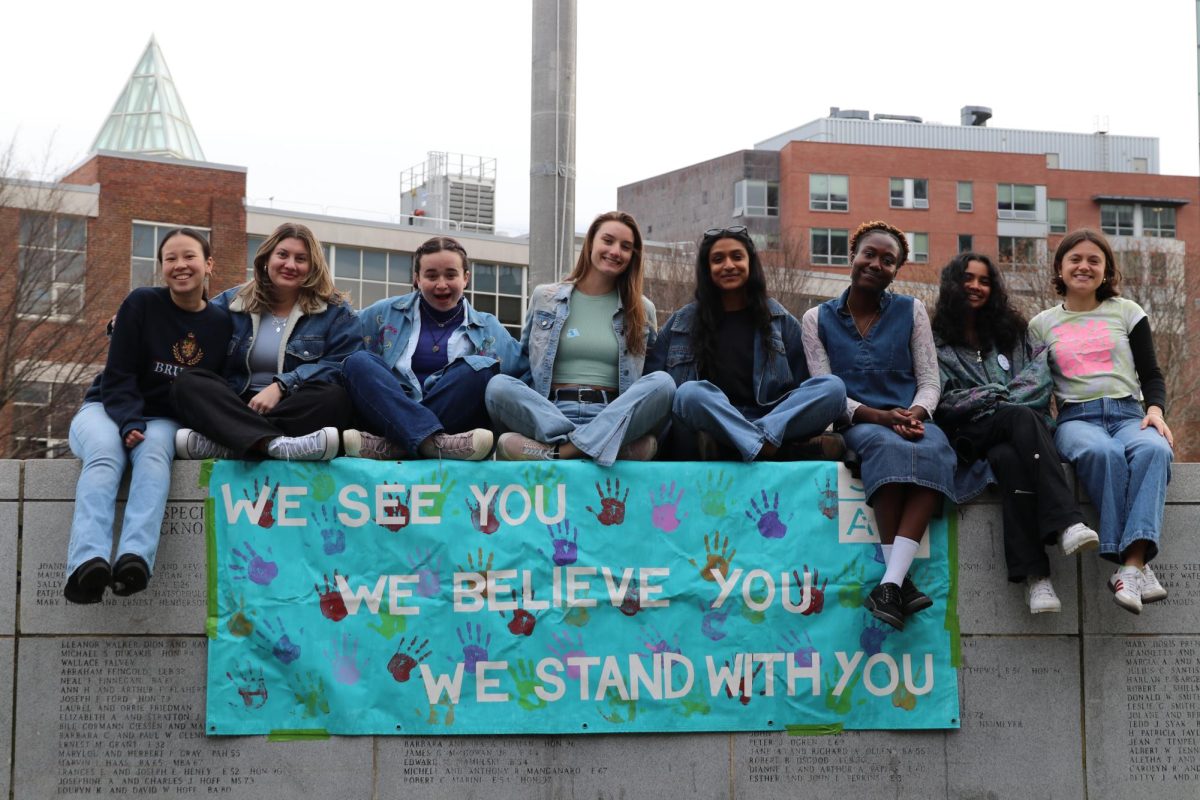By Logan Meyer, news correspondent
Northeastern University researchers received a $500,000 grant from the National Institute of Justice (NIJ) to study the causes and effects of officer suicides within the Massachusetts Department of Correction (DOC).
The funding, announced on Monday, Sept. 26, is one of 10 NIJ grants totaling $6.3 million awarded to several universities study the diverse effects of incarceration, including the ramifications of correctional officer (CO) suicide.
“This study is exploratory,” said Natasha Frost, the associate dean for graduate studies at the College of Social Sciences and Humanities (CSSH) and head of the research. “There’s never been a study like this. It’s really unprecedented. We want to work to understand the patterns with correctional officers in Massachusetts.”
Research will be conducted by Frost and Senior Research Associate Carlos Monteiro. According to a CSSH press release, the researchers will carry out the study in three parts, with each stage diving deeper into the research.
Phase one of the study will consider case studies involving the 16 COs who have committed suicide in Massachusetts since 2010. Phase two will look at the impact of these suicides on select officers within the DOC. Phase three will then study the connections and distances between the individuals studied in the first two phases to determine any patterns. Monteiro and Frost intend to use the interviews and case studies from the examination to guide future research in the area.
Concerns surrounding untreated stress in COs is not new. In 2012, nonprofit Desert Waters Correctional Outreach—which conducts research aimed at improving the wellbeing of correctional officers—released a study in which 27 percent of the 3,600 surveyed COs suffered symptoms of post-traumatic stress disorder (PTSD) within the past 30 days.
“Massachusetts has readily admitted it has a problem with suicide among its corrections staff,” Frost said. “Their willingness to realize that there’s a problem and allow researchers access to their staff is pretty big. What we find in this study may or may not apply elsewhere, but we hope others will benefit from the research.”
The two researchers are currently conducting a study on the sources and impacts of stress within the Massachusetts DOC work environment. Findings from that research prompted them to apply for NIJ funding to look at the impact of suicides specifically.
“While conducting some of our interviews, we kept learning more and more about suicide within the correctional staff,” Frost said. “It became quickly apparent that it had an impact on the well-being of those who still worked there.”
Monteiro and Frost will work with Riverside Trauma Center, a group which does work in postvention—a type of intervention aimed at supporting to those impacted by suicide—to develop an adequate suicide prevention program. They hope this program will eventually become a part of correctional officer training.
They will be further assisted by the On Guard Initiative, a 501(c)(3) nonprofit which works to increase awareness of correctional officer suicide. The On Guard Initiative was founded five years ago by Bryanna Mellen whose father, a CO of more than 20 years, committed suicide.
Mellen said her main goal was to spread awareness about CO suicide. Now, the group works with other organizations and families of victims to work to change the situation.
“It seems to be a huge issue everywhere,” Mellen said. “We’ve worked with people in almost every state and have found that it’s a widespread problem. There’s been almost no official research on this topic and so we’re really hopefully about where this study will lead.”
Through its connections with state legislatures, victims families and other non-profit groups, On Guard plans to provide the researchers with access to the information they need.
With the current lack of data, the researchers’ path is wide open. With support from outside groups, they plan to open a wide array of future studies specifically targeted at corrections officers.
“They’ve been a neglected group, [correctional officers],” said Monteiro. “You have plenty of studies on police and firefighters, but no one’s ever studied this before.”
Photo by Alex Melagrano














